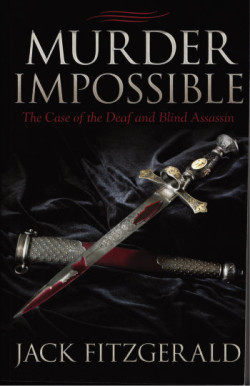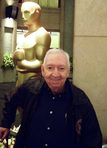Voice and Style
Reviews of my latest book MURDER IMPOSSIBLE are starting to come in. I am pleased to say that they have so far all been very positive. You may read some of them in “The Reviews Are In” link in today’s blog. I hope you will go there and see what some reviewers of my book have said. I’d also appreciate it if after you have read the book, you will write a review and add it to this link.
 Here are some statements reviewers have recently made about my book MURDER IMPOSSIBLE:
Here are some statements reviewers have recently made about my book MURDER IMPOSSIBLE:
“I loved feeling like I was really on a cruise somewhere and not stuck inside with all this dreary snow!”
“Jack Fitzgerald infuses a unique blend of mystery, drama, romance, adventure, and shocking turns. “
“We feel like we are a part of the book.”
“I enjoyed the author’s voice and style of writing.”
It was an easy read that held on to my attention from start to finish.”
“Some of the best characters I’ve come across in a while….All unique and quirky.”
“I totally got hooked on the creative plot and fell in love with the characters.”
I didn’t just choose the juiciest phrases from the different reviews. I selected six sentences that would illustrate the themes of this week’s blog: Voice and style. I will add another statement that several of my close friends who have read my works tell me: “It sounds just like you talking.”
One day when I was age 17, my brother asked me a question after reading a couple of pages of my inventiveness. “Who do you think might read this?” I had no idea. I thought you just wrote and that people would publish it and other people would read it. Wrong,, wrong, wrong.
It took me years to realize that writing is a case of planned effort. You must write to someone—not just haphazardly let the chips fall where they may. Most of all, when you write you must have a plan and a purpose. These are where a writer’s voice and style come into play. Over the years, I began to see what made Oscar Wilde and Ernest Hemmingway completely different writers.
I wrote off and on for a few years but until I moved to France at the age of 39, I never found my voice in writing. “Voice? What is voice as it pertains to writing?” you’re most likely saying. The answer is: Voice is the personality of the author imprinted onto what he writes.
Before anything though, the author needs to determine the goal of his writing. Are you attempting to inform, persuade, or entertain? This part of your writing is called “style.”
You have TWO types of STYLE.
Business and Technical Style: They use a lot of long, obscure words and the sentences are mostly lengthy. A certain stiffness is thought of as not only acceptable but preferable. This style is unfriendly and keeps the reader at a formal distance.
Conversational Style: Here you use personal pronouns, contractions and everyday words and phrases. Its purpose is to be friendly, sociable and accessible.
Therefore, a writer’s voice includes his or her combination of syntax, use of language, punctuation, character development, dialogue and plot. Voice is what makes one author unique to another. It’s what leads the reader to a subjective, emotional state of mind while reading a work. Voice is the distinct personality of a piece of writing. It’s what lets you feel the difference between reading a legal textbook and Fran Lebowitz. One is dry as toast and the other will have you laughing in stitches.
So how does one get this elusive “voice?” I suppose you could study and mold yourself over time. How do you know if you have a distinctive voice? Listen to your reviewers and readers. Re-read the statements at the opening of this blog and you will see that the reviewers are all reacting emotionally to my writing. That is when you know you have found your voice.
So, how did you find your voice? I went to live in Paris, France, and accidentally found my muse—muse being a word that can be used for the word voice.
We were putting on a two-character, one-act play of mine in Paris. It was a pretty turgid thing called KILLING TIME. One thing I didn’t realize. This play was not going to be well received because it had no “voice.” It was stiff and talky and at times humorous. In other words, it was all over the place. It was neither fish nor fowl. That is when my muse arrived and took over quite by accident.
One of the two-characters quit the night before our opening. We were in a real jam. What to do? In desperation, the husband of the woman playing the other character in the play volunteered to do the part in drag. I quickly rewrote certain parts of the play because somebody in drag saying some of my original solemn lines would be laughed off the stage. I quickly cut the long, declarative sentences, shortened some of the unfriendly long words and made it into a full-fledged comedy. We opened the next night. We were originally scheduled to run for 4 performances. Thanks to my muse, it ran for six weeks.
My career was born. I had found how to put color into my writing. I haven’t stopped since. That woman’s quitting is directly responsible for reviews such as you will find in the link “The Reviews Are In.”
Add some color to your writing life via voice and style. You won’t regret it.



